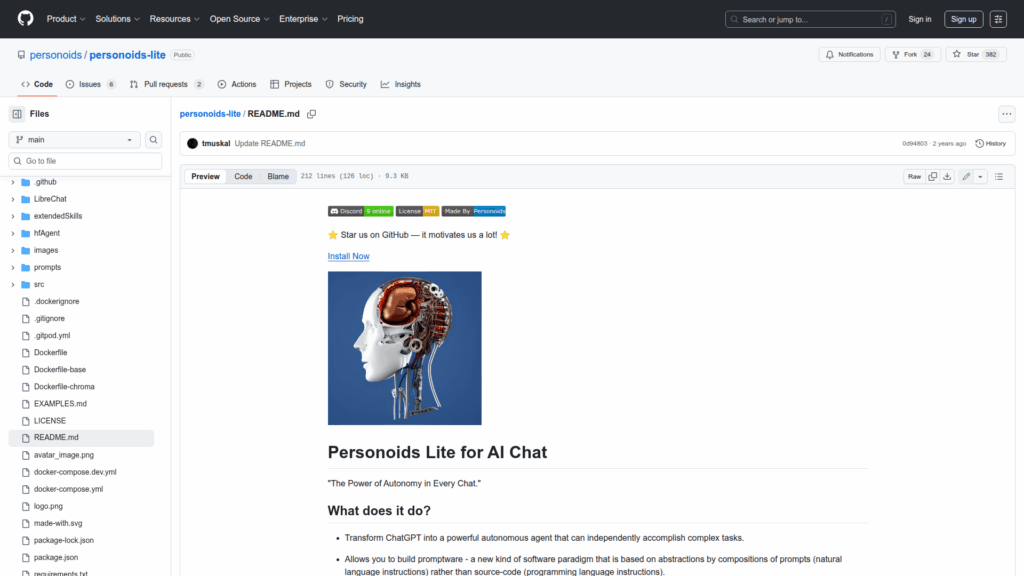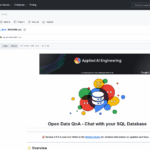personoids-lite
Basic Information
Personoids Lite is a developer-focused toolkit and ChatGPT plugin that transforms LLM-based chats into autonomous agents called Personoids. It is designed to let users build and run "promptware", a paradigm where software behavior is composed from natural language prompts rather than traditional source code. The project provides a local server and plugin manifest so ChatGPT with developer plugin access can load the Personoids Plugin, bootstrap sessions, and extend capabilities at runtime. The README documents requirements such as an OpenAI API key, ChatGPT plugin developer access, Docker/docker-compose, and an optional Serpapi key. Personoids Lite adds planning, memory, web access, search and execution abilities to a chat session and aims to let the agent learn, integrate new skills on demand, and operate across a shared Docker-mounted workspace.








